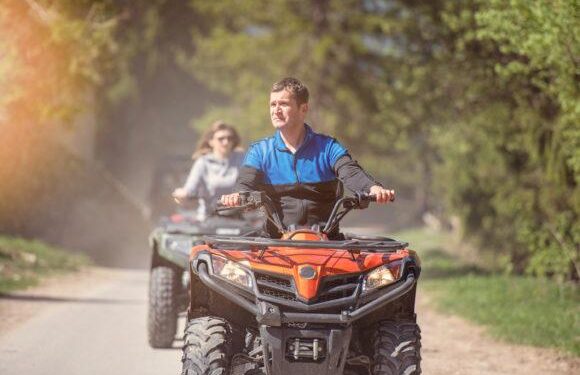The Virginia Supreme Court has ruled that an all-terrain vehicle (ATV) is not a “farm type vehicle” covered by a homeowner’s insurance policy, reversing a lower court that ruled in favor of coverage.
The lower court ruled for the injured party because it had found the language in the homeowner’s policy ambiguous. The Supreme Court disagreed, ruling that a policy exclusion for a farm type vehicle does not apply to the ATV.
In December 2019, Diamond Jones was riding as a passenger on the back of an ATV. The daughter of Jennifer and Richard Rekowski was driving the vehicle. While Jones was riding, a tree branch struck and injured her. The accident did not take place on the Rekowskis’ property.
Jones filed a negligence action for her injuries against the Rekowskis and their daughter. Erie contended that the policy did not cover the accident.
The Rekowskis were insured by a homeowner’s policy issued by Erie Insurance Exchange. The exclusions section of the policy broadly provides that the policy does not cover “[b]odily injury, property damage or personal injury arising out of the ownership, maintenance or use of . . . any land motor vehicle.”
Vehicles, however, are not excluded if:
1) they are used solely at an insured location and not subject to motor vehicle registration; 2) they are kept in dead storage at an insured location; 3) they are a recreational land motor vehicle not designed for use on public roads while at an insured location; 4) they are a golf cart, wherever used or located; 5) they are a lawn or farm type vehicle or snowblower, wherever used or located, if not subject to motor vehicle registration; 6) they are designed to assist the handicapped[.]
The policy does not define “lawn or farm type vehicle.” If the vehicle in question is a “recreational land motor vehicle,” the policy would not cover the accident because it did not occur “at an insured location.” If the vehicle is a “lawn or farm type vehicle,” then the policy would cover the accident.
The state Supreme Court said that “indisputably” a combine or a tractor is a “farm type” vehicle, as it is designed and used primarily for farming. A combine or a tractor can be used for other purposes, such as a hayride or a tractor pull, and a combine might be used as a prop in a movie, but what identifies a combine or a tractor as a “class or kind” is that they are designed to be primarily used on a farm.
The court continued that while the ATV in this case can potentially be used for either recreation or for use on a farm, there is no evidence that this ATV was designed for primary use as a farm vehicle like a combine or a tractor and thus it is not a “farm type” vehicle.
“To read ‘farm type vehicle’ as encompassing any vehicle that could potentially be used on a farm would create an exception so broad it would render the limits on coverage meaningless. A pickup truck, sport utility vehicle, or even a motorcycle can be used on a farm. However, pickup trucks, sport utility vehicles, and motorcycles, despite their potential for use on a farm, are not ‘farm type; vehicles,” the opinion states.
The court concluded that as a matter of law, the language “lawn or farm type vehicle or snowblower” does not encompass a multi-use vehicle like an ATV. Thus, the policy exception for a farm type vehicle does not apply, while the exclusion for “land motor vehicle[s]” does apply because the incident did not take place at an insured location.









